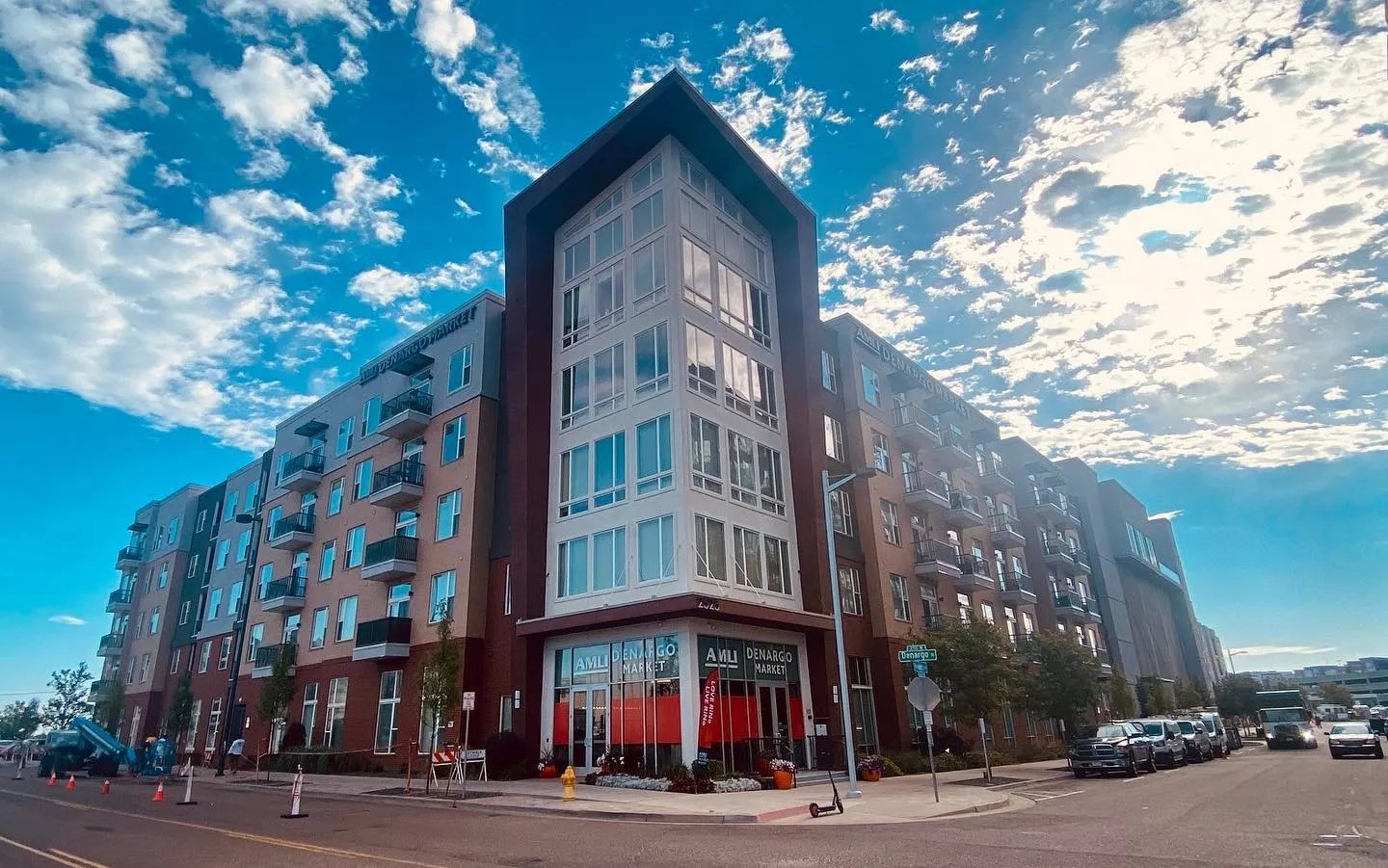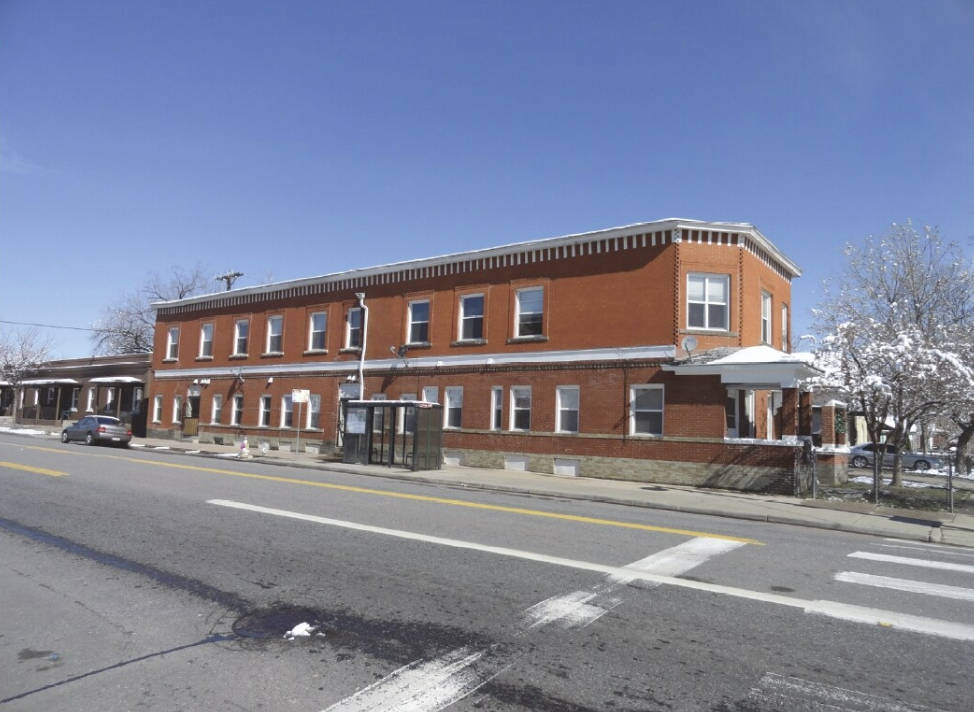
AMLI Denargo Market

Audio By Carbonatix
Every rental property in Denver is meant to be licensed by January 1 under a new registration program implemented by the city. According to Department of Excise & Licenses data, it will likely only have licensed about 15,000 of the potentially 50,000 rentals in Denver by that deadline, but applications are starting to pick up – and at a record-breaking pace.
October and November saw consecutive monthly highs. In November, 1,700 license applications were filed, and at the start of December, there were nearly 12,000 active licenses and about 1,500 pending applications.
The license is required by the Healthy Residential Rentals for All ordinance, which was passed by Denver City Council in May 2021. Councilmembers designed the ordinance to help even the playing field between renters and landlords, as well as gain an official count of rental properties in the city – something that has never existed.
“Making sure that we have all of the tools that we can to make sure that the clients that we serve are living in safe and healthy conditions is a pretty basic thing,” says Melissa Mejia, Head of Policy for the Community Economic Defense Project (CEDP), which began by helping people facing eviction and now works toward equity for renters and other Coloradans more broadly. “But that’s hard to do when you don’t really have any kind of record or a way to track or monitor who’s renting places and how many there are.”
Mejia says the growing rental registry in Denver will help with accountability for landlords, as well as keep people in safer homes, because now there’s information about who is in charge of what buildings. “It’s such a basic data point that we just didn’t have before,” she says of property management records.
Multi-unit properties were all meant to be licensed by January 2023, and single-unit properties have a deadline of January 2024. Along with getting the word out, Excise & Licenses has devoted time in the last year to tracking down unlicensed multi-unit properties. When it finds one, it sends notices of violation, telling property owners they are out of compliance. If those properties don’t apply after that, the department issues fines.
To date, Excise & Licenses has sent out 1,731 notices of violation. A spokesperson tells Westword that most landlords apply after they get the notice. Those who don’t have to pay up.
As of the beginning of the month, the city had issued 280 first-violation fines with penalties of $150, forty $500 second-violation fines and six $999 fines for a third violation; one building has two such violations.

This ten-unit property made history when it became the first property to receive a 9 fine for not getting licensed.
To get licensed, property owners or managers must apply and pass an inspection that checks to see if rental properties are following Denver’s minimum housing standards. This includes working heat, running water, fire safety measures, proper electrical wiring and sufficient egress.
Mejia says CEDP’s clients often have issues with non-functional heat or mold. The organization tries to make sure people know they have rights to a healthy property, aided by the second part of the May 2021 ordinance, which requires all landlords to present new tenants with a copy of the Denver Renter’s Bill of Rights when they sign their lease.
“It’s our clients knowing what their rights are and being able to advocate for themselves,” Mejia says. “People know that they have somewhere to turn.”
Landlords who may be confused about the licensing process have options too, according to Frank Holligan, co-owner of the real estate company Tubbesing and Holligan. He and his business partner, Richard Tubbesing, own a few dozen properties in Denver – largely single-family or condos, but some are big enough to qualify as multi-unit properties.
“If you have a single-family residence, then everything was pretty straightforward,” Holligan says. “It’s just when you get into what they consider the multi-family units that it was a little complicated.”
According to Holligan, the Excise & Licenses website was very user-friendly for single units but required a lot more attention to detail for the multi-unit spaces. For instance, one of his properties – a duplex with a finished basement – was actually considered a commercial property by the city, which caused an unexplained error in his application for that space.
However, Excise & Licenses was there to help, and department staff successfully walked him through everything.
“Boy, the people that work there at the desk and the people you deal with, to me they were just fantastic,” he says.
After the initial application snags, Holligan didn’t have any trouble with the inspections. He says his tenants didn’t mind too much, either, as each inspection only took about twenty to thirty minutes. Additionally, though he did have to pay for the inspection and licensing, he is pleased that it lasts four years, so he doesn’t expect the costs will have a huge impact on what he and Tubbesing charge in rent.
In his case, Holligan had to add fire extinguishers and GFCI circuit breakers to a few properties before passing a re-inspection, but he didn’t run into any major problems. “It was just kind of basic, common-sense stuff that you would expect when you rent a rental property,” he says. “Unfortunately, I think this whole thing resulted because a handful of slumlords really were treating tenants badly, and the city thought that they probably had to react.”
Anyone who regularly takes good care of their properties, Holligan notes, shouldn’t be troubled by the inspection and licensing process. “By the end of the year, even slumlords are going to have to pass inspections,” Holligan points out. That is, if the city can track them down.
Mejia is noot surprised that undertaking the largest license inspection in Denver history has been a challenge for Excise & Licenses. “If you’re thinking about the need that we have, and the affordability needs that we have, and the health and safety of all of the units that are actually up for rent in the city, having a rental registry is so important to actually move forward a lot of the work that we want to do around housing – but it is not a small project,” she says.
Property managers can check out the city’s FAQ page on rental licensing for more information. Tenants experiencing problems at their apartments can call 311 to file a report. Renters can also check their address in the city’s Permitting and Licensing Center to see if the property is licensed or has a pending application. If not, they can contact Excise & Licenses or call 311.
“It will be interesting to see how many of the single-family homes actually make the deadline,” Mejia says. “And then, once everyone is supposed to be covered by it, how they’re able to be held accountable and how those inspections are helping or not helping.”